|
Saturdee
Opry Links # 118:
Pioneering African-American Male Singers
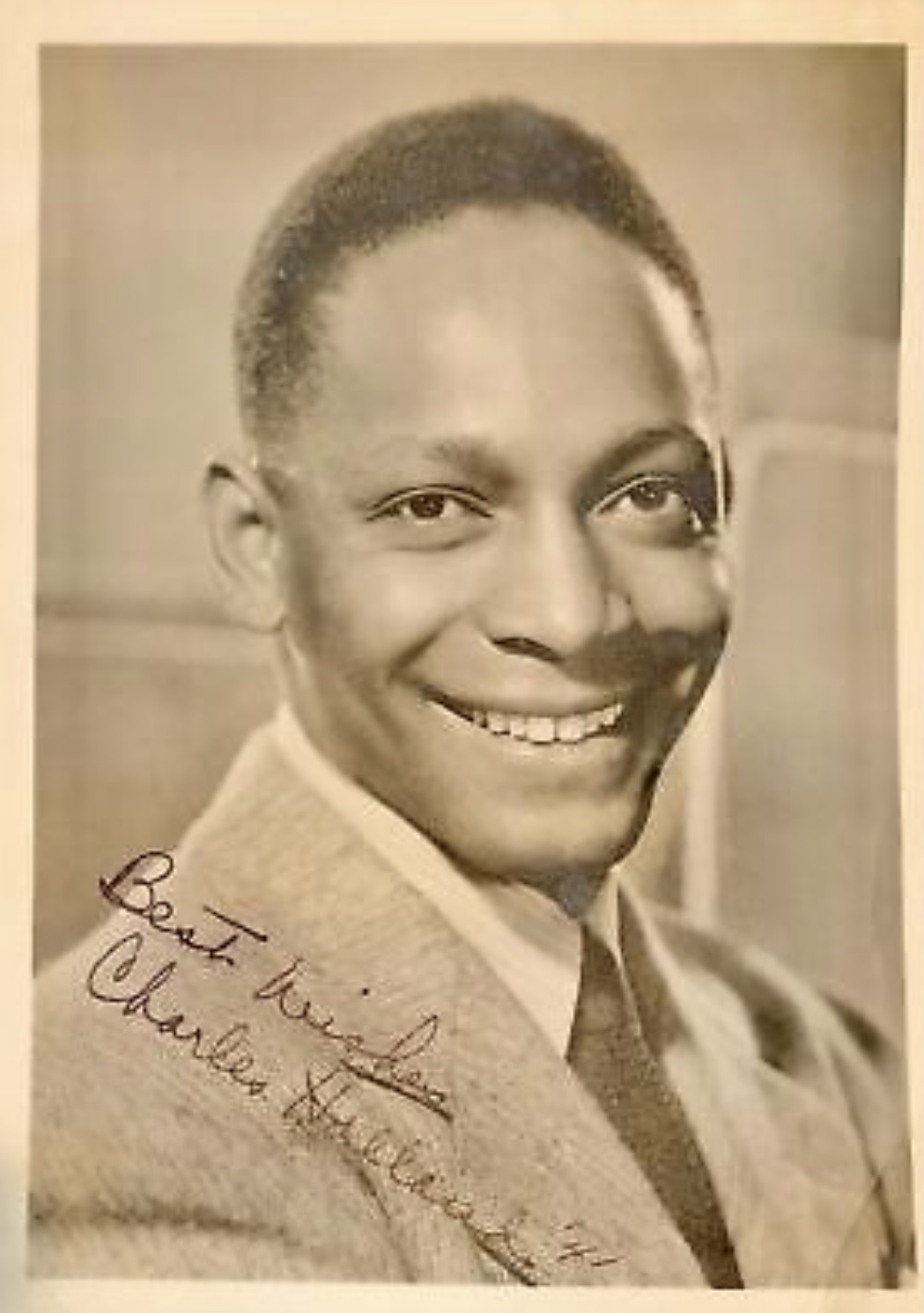 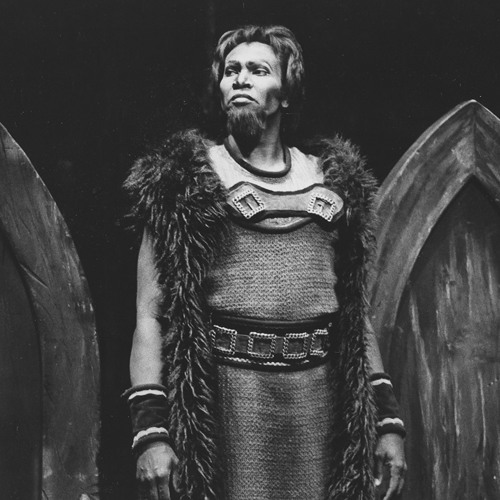 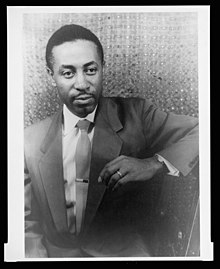 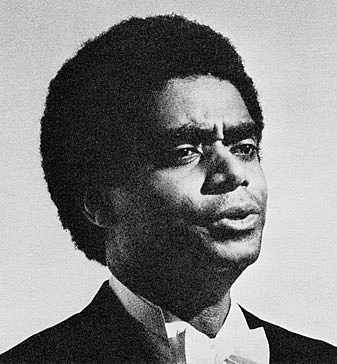
Charles Holland
Simon Estes as Hagen
Robert McPherrin
George Shirley
Saturdee Opry Links Overture:
"Barber of Seville"---a cappella!
https://www.youtube.com/watch?v=SrXJnMvg9uI
1.
But for insane racial discrimination in this country, you would all know the
name, Charles Holland. He would have gone down in history as the first
African-American opera star, without a doubt. But like you, probably, I never
heard of him---until the other day, when I happened to tune in a cornball
"extravaganza" movie, "Hullaballoo," from 1940. And there was a very fine
performance of "Vesti La Giubba" ("Put on the make-up") from "Il Pagliacci," by
Leoncavallo---sung by a handsome young African-American tenor. He was playing a
bellhop, not surprisingly, who could sing opera. There is almost no evidence of
him on Youtube, sorry to say. Here is a preview of "Hullaballoo," with an
excerpt from Mr. Holland's performance. Be impressed.
Setting: The entrance to a village, Calabria, Italy, 1860s
Synopsis: Canio sings that, although his love has betrayed him and his heart is
broken, he must go on and show a cheerful face to the world.
Translation:
http://www.aria-database.com/search.php?individualAria=595
https://www.youtube.com/watch?v=XA1iYTqt_w8
Where to buy the movie:
https://www.ebay.com/itm/Hullabaloo-1940-DVD-Frank-Morgan-Virginia-Grey-Dan-Dailey-Jr-New/164144444246?epid=115415116&hash=item2637c57356%3Ag%3AlRQAAOSwBptejrwN
2.
My God, what a story Charles Holland's life was. It would make a terrific movie
(if they just told it straight, letting events speak for themselves, and laid
off heavy-handed proselytizing about racial prejudice.) He started by singing
jazz with the bands of the great Benny Carter and Fletcher Henderson, in the
'30's, but his ambition was musical theater and opera. His NYT obit says that
Holland actually had his own radio program on NBC for a time---amazing!---but
gives no further information. The series landed him roles in the stage
production of Marc Connelly’s drama “Green Pastures,” and “Hullabaloo.” He
managed to parlay this into an appearance in Virgil Thomson’s opera, “Four
Saints in Three Acts," garnering this praise from an NYT critic: ''a refined and
delicate artist with a light voice which was sweet and true.'' By 1949, Holland
had enough of being thwarted by his ethnic appearance---opera was showing signs
of opening up to African-American women, but not men!---and moved to Europe. (As
did so many great artists, including Memphis Slim, Sidney Bechet, Eartha Kitt,
to name a few at random.) He sang on French radio and television, made his debut
at the Paris Opera in Mozart's '"The Magic Flute'' in 1954, and became the first
black singer at the famed Opera-Comique the following year. His voice having
darkened since 1940, he actually assayed the enormously difficult ''Otello," by
Verdi, in London and continued to have a successful career in Europe, with opera
and recitals.
Here is one of two specimens of Mr. Holland singing on Youtube, a late,
free-standing Mozart aria of great sadness, "Misere O sogno, O son desto"
("Misery! Do I dream, or am I awake?"
https://www.youtube.com/watch?v=_dfZTBcTgnY
"Miserable! do I dream, or am I awake?
The way is closed to escape!
I then, oh stars!
Alone in this place,
Shut up by shadows!"
Full translation:
https://www.lieder.net/lieder/get_text.html?TextId=1021500
3.
After his voice darkened in middle age, tenor Charles Holland not only sang "Otello,"
in Europe, but also the leads in “Carmen,” “Boris Godunov” and Gounod’s “Faust.”
He was a bonafide great. After a 20-year self-imposed exile in Europe, he
returned to the United States in 1969, perhaps because opportunities had
improved for African-American opera singers. Composer/conductor Dennis Russell
Davies took him under his wing in the mid-1970s, with several concert tours and
recording projects. In 1981, at the age of 72(!), Holland gave a recital at
Carnegie Hall. ''I heard this extraordinary voice and this extraordinary story
the man has,'' Davies recalled, saying Mr. Holland was ''the most remarkable
artist it has been my good fortune to meet.'' Here is Mr. Holland, when his
voice was still light and young, with "Dalla Sua Pace," from Mozart's "Don
Giovanni."
Setting: The countryside near the palace of Don Giovanni
Synopsis: After Donna Anna asks Don Ottavio, her fiance, to take revenge of Don
Giovanni for killing her father, she leaves, at which point Don Ottavio express
his love and worry for her.
https://www.youtube.com/watch?v=L5MBLY3Cr4I
Translation:
http://www.aria-database.com/search.php?individualAria=86
SOL EXTRA! Things have changed!
https://en.wikipedia.org/wiki/Category:African-American_opera_singers
4.
Charles Holland died in 1984 at age 77, at his home in Amsterdam. The year
before, he recorded an album of spirituals, “My Lord What a Mornin’ ” and
appeared again in New York where “he sang from a full heart and with a
conviction that need not give place to anyone,” as New York Times critic Will
Crutchfield put it, adding that “his voice failed him at times; his spirit
never.” Here is the spiritual, "Hear de Lambs," from his album.
https://www.youtube.com/watch?v=OSv0QQ1KoZE
5.
So Charles Holland did not become the first African-American tenor to sing at
the Met, but about ten years after he left to pursue a career in Europe, things
changed for the better for African-Americans pursuing opera. After the debuts
and triumphs of sopranos Helen Phillips, Marian Anderson, Mattiwilda Dobbs,
Leontyne Price, Camilla Williams, Grace Bumbry, operatic things loosened up for
African-Americans in general, and in 1961, George Shirley won the Met auditions
with a rendition of "Nessun Dorma" from Puccini's "Turandot." He went on to an
eleven-year career at the Met, singing 28 roles from Mozart, Verdi, Puccini,
Strauss and Wagner. He is still with us at 86 (5/21.) Here he is with the
gorgeous aria from Bizet's "Carmen," "La fleur que tu m'avais jetée" ("The
flower that you tossed to me.")
https://www.youtube.com/watch?v=6UNydZM6b0A
Synopsis : Carmen and José have just reunited after José's stay in prison for
releasing Carmen when he was supposed to be guarding her. She has danced and
played castanets for him but in the distance, he hears the call back to the
barracks and he says he must go. She becomes angry at him for leaving her. Don
Jose then responds by singing how the flower she threw to him kept him going
throughout his stay at the prison.
Translation:
http://www.aria-database.com/translations/carmen05_fleur.txt
6.
George Shirley remains on the faculty at the University of Michigan as professor
emeritus (5/21). His story is a great one. Born in Indianapolis on April 18,
1934, the tyke, George, joined mother Daisy and father Irving, singing at their
local church. At only five, George won a local talent competition singing a Bing
Crosby song. When the family moved to Detroit in 1940 (where his father went to
work building cars), George continued his to develop his musical abilities,
going on to win a scholarship to Wayne State University where he graduated with
a B.S. in Music Education. In 1955, George became Detroit’s first black high
school music teacher. The following year, drafted into the Army, he became the
first African-American man to sing with the U.S. Army chorus---inspiring him to
take up opera. His first public opera performance, Strauss's operetta, "Die
Fledermaus," took place in 1959 with a small Woodstock, NY opera company. A year
later, Shirley won the American Opera Auditions and was offered the role of
Rodolfo in Puccini’s "La Boheme" in Milan, Italy. This led to his winning the
Met auditions in '61. He was a lyric tenor, ideally suited to Mozart. Here he is
with the gorgeous Mozart aria, "Un' aura amorosa" ("A breath of love"), from "Cosi
fan Tutte," exquisitely done.
Role: Ferrando, a soldier who is in love with Dorabella
Setting: the living room of Dorabella and Fiordiligi
Synopsis: Guglielmo complains of his hunger but, in this aria, Ferrando tells
him he should hold his appetite, for even the possibility of love from their
beloveds will sate one's hunger at once.
https://www.youtube.com/watch?v=S1PJZ9cZ6v0
Translation:
https://www.opera-arias.com/mozart/cosi-fan-tutte/un-aura-amorosa/
SOL EXTRA! George Shirley remembers Pavarotti:
https://www.youtube.com/watch?v=FGJ0WH1s2SA
7.
The great baritone, Robert McFerrin, was the first African-American male to sing
at the Metropolitan Opera. What? You mean Bobby? "Don't Worry, Be Happy?" No,
that's his son. Born in Marianna, Arkansas, the senior McFerrin excelled---as
did many great opera singers---at singing in church---later singing gospel music
as a teenager, with a trio. His dad sent the boy to live with an uncle in St.
Lous, in order to pursue singing more seriously. In1953 he won the Metropolitan
Opera's "Auditions of the Air", the first African-American to do so. Still, he
did not receive a contract! In 1950, Sir Rudolf Bing took over the Met, and
began pushing for integration. As a result, McFerrin followed debuted a the Met
in 1955. Here he is, singing the dramatic, "Pari Siamo," from Verdi's "Rigoletto."
https://www.youtube.com/watch?v=r9q_MjRRerk
Setting: A street
Synopsis: After he meets Sparafucile, an assassin, Rigoletto compares himself to
the murderer saying that, as Sparafucile used his knife as a weapon, Rigoletto
used his tongue.
Translation:
https://www.opera-arias.com/verdi/rigoletto/pari-siamo/
8.
The brilliant baritone, Simon Estes, was another African-American opera singer
who fled this country for more open-minded Europe, where his career flourished
throughout the '60's and '70's. Born in the Centerville, Iowa---an almost
satirically All-American sounding place---Estes, yes, grew up singing in church.
His father was a coal-miner, and his grandmother a former slave once sold at
auction for $500. It is reasonable to assume that young Simon felt he had
something to prove. Yes, he grew up singing in church, but opted for pre-med at
the University of Iowa---then switched to psychology. . .and finally to voice.
Good move! He went on to a spectacular career in all the major European opera
houses, and became first African-American male to sing a leading role at the
Bayreuth Festival---the lead in Wagner's "The Flying Dutchman." That performance
was a special triumph for him, and he went on to sing at Bayreuth for the next
six consecutive years. Here is part of that super-dramatic appearance at
Bayreuth as the Dutchman. This is "Die Frist ist um."
https://www.youtube.com/watch?v=FkMBPLhtzoU
Setting : A ship docked in a fjord during a storm, the coast of Norway, 18th
century
Synopsis : The Dutchman has been condemned to sail the seas forever with his
only respite coming every seven years. The seven years have at last passed again
and the Dutchman is to go on land again. The only thing he truly wants, though,
is death but he is not allowed to die.
Translation:
The time is up and seven more years
have gone. Weary of it the sea casts me up
on land. Ha! proud ocean!
Soon you shall bear me again!
Your spite is fitful, but my torment is eternal!
The grace I seek on land never
shall I find! To you, ocean-tides,
I shall be true, until your last wave
breaks, and you are drained dry.
How often into the sea's deepest maw
have I longingly hurled myself,
yet death, ah, I found it not!
There, in the awful tomb of ships,
I drove mine on to the rocks,
but alas, no tomb closed over me!
Mockingly, I defied the pirate,
in fierce combat I hoped for death.
Here - I cried - Show your prowess.
With treasure my ship is filled.
Alas, the sea's barbarous son
crossed himself in terror and fled!
Nowhere a grave! Never death!
This is damnation's dread command!
German: (go here and search for "Frist.)
http://www.murashev.com/opera/Der_fliegende_Holl%C3%A4nder_libretto_English_German
9.
In 1981 Estes was finally offered a contract to sing with the Met. He accepted,
but at the time was cautioned by Leontyne Price, the first African-American to
become a leading soprano at the Met (still with us at 93!), about potential
trouble. Price, who weathered death threats when she first opened at the Met,
told him, "Simon, it's going to be even more difficult for you. Because you are
a black male, the discrimination will be greater. You have a beautiful voice;
you are musical, intelligent, independent and handsome. With all of these
ingredients, you are a threat. It will be more difficult for you than it was for
me." The Met audience and critics were overwhelmed, of course, when he debuted
in 1982 in Wagner's "Tanhauser." Here he is with Ms. Price in 1985 in a dramatic
sequence from Verdi's "Aida." This is the noble, "Quest assisa chio vesta vi
dica," or "The uniform I wear may tell you." He went on to sing with the Met for
the next six years.
https://www.youtube.com/watch?v=8YYIoU4X_4E
Translation:
https://www.opera-arias.com/verdi/aida/quest-assisa-chio-vesta-vi-dica/
FINAL BOW:
Didn't set out to devote the whole SOL to African-American male singers---it
just worked out that way. Here is one of the great (African-American) lyric
tenors of today, Lawrence Brownlee, with "Ah mes amis" from "Daughter of the
Regiment," by Donizetti---complete with nine high C's. "Ah, my friends. . ."
Setting: an army camp site in a valley in the Swiss Tyrolese Mountains, 1815
Synopsis: After Tonio has been made a member of the French Grenadiers, he
approaches some of the members and explains that he has joined the regiment
because he loves the regiment's adopted "daughter" Marie. In the cabaletta "Pour
mon âme", after asking the members of the regiment to allow him to marry Marie
and receiving an affirmative answer, Tonio sings his joy at finally being united
with his one love. He promises to take care of her and protect her forever.
https://www.youtube.com/watch?v=cIQjnJqNuU8
Translation:
http://www.aria-database.com/search.php?individualAria=783
Saturdee Opry Links Encore!
And here is a fine (African-American) dramatic tenor of today, Russell Thomas,
who graces the world's premiere stages, with the wonderful Tosti song, "L'alba
sepàra dalla luce l'ombra" ("The dawn divides the darkness from light.")
https://www.youtube.com/watch?v=HguJ71P2p7M
Translation:
https://www.lieder.net/lieder/get_text.html?TextId=203
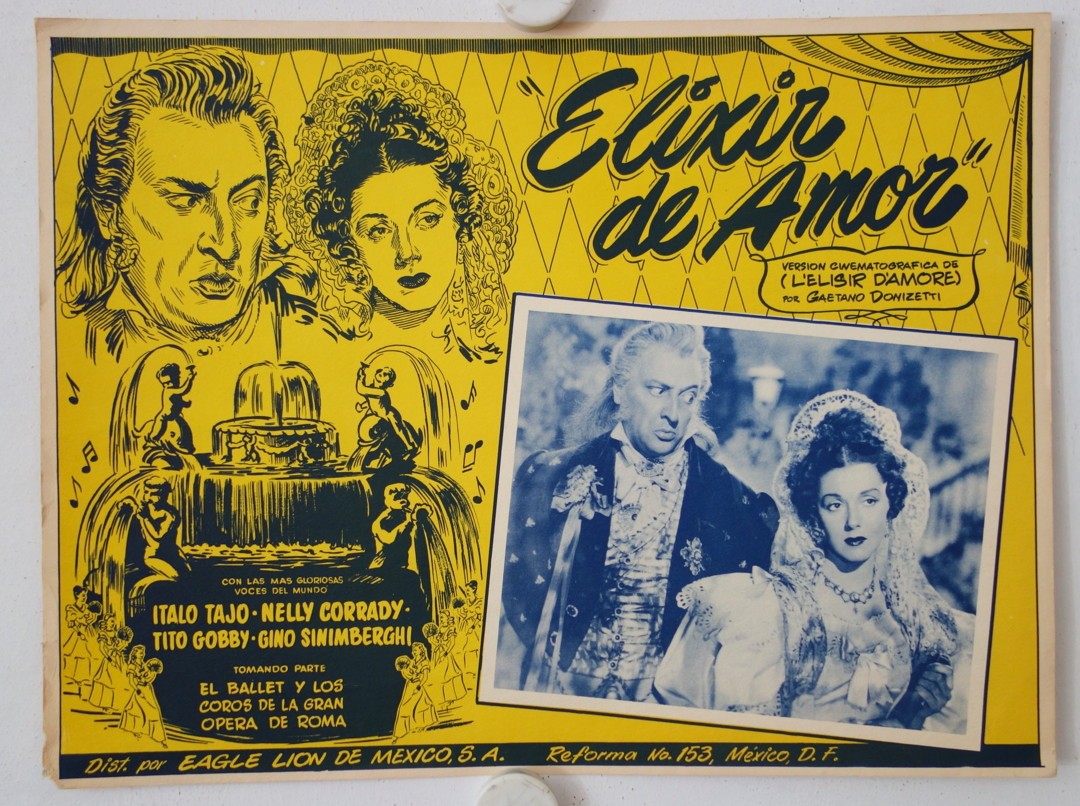
Back to Opera Links
Back to Home Page
|



